Contents
| 1885 in Brazil |
|---|
| Flag |
 20 stars (1871–89) |
| Timeline of Brazilian history |
| Empire of Brazil |
| Year of Constitution: 1824 |
Events in the year 1885 in Brazil .
| 1885 in Brazil |
|---|
| Flag |
 20 stars (1871–89) |
| Timeline of Brazilian history |
| Empire of Brazil |
| Year of Constitution: 1824 |
Events in the year 1885 in Brazil .

The "Brazilian National Anthem" was composed by Francisco Manuel da Silva in 1831 and had been given at least two sets of unofficial lyrics before a 1922 decree by president Epitácio Pessoa gave the anthem its definitive, official lyrics, by Joaquim Osório Duque-Estrada, after several changes were made to his proposal, written in 1909.
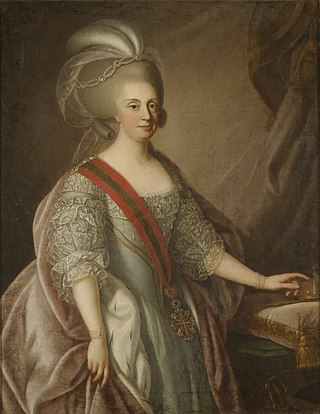
DonaMaria I was Queen of Portugal from 24 February 1777 until her death in 1816. Known as Maria the Pious in Portugal and Maria the Mad in Brazil, she was the first undisputed queen regnant of Portugal and the first monarch of Brazil.
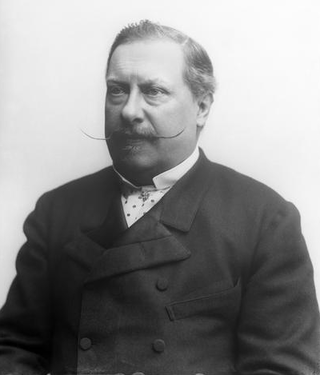
DomLuís I, known as the Popular was King of Portugal from 1861 to 1889. The second son of Queen Maria II and her consort, King Ferdinand, he acceded to the throne upon the death of his elder brother King Pedro V. He was a member of the ruling House of Braganza.

The Lei Áurea, officially Law No. 3,353 of 13 May 1888, is the law that abolished slavery in Brazil. It was signed by Isabel, Princess Imperial of Brazil (1846–1921), an opponent of slavery, who acted as regent to Emperor Pedro II, who was in Europe.

DomFerdinand II was a German prince of the House of Saxe-Coburg and Gotha-Koháry, and King of Portugal jure uxoris as the husband of Queen Maria II, from the birth of their first son in 1837 to her death in 1853.

The Eusébio de Queirós Law, officially Law No. 581 of 4 September 1850, was a law passed in the Empire of Brazil on 4 September 1850 to abolish international slave trade in the country. This law was named after Eusébio de Queirós Coutinho Matoso da Câmara, who was the Brazilian Minister of Justice from 1848–1852.
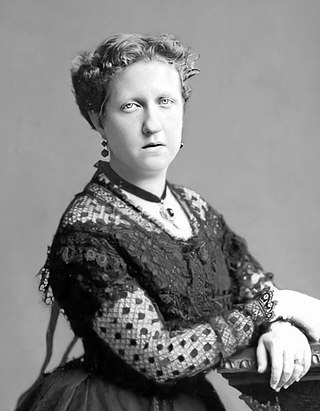
DonaIsabel, nicknamed "the Redemptress", was the Princess Imperial of the Empire of Brazil and the Empire's regent on three occasions. Born in Rio de Janeiro as the eldest daughter of Emperor Pedro II of Brazil and Empress Teresa Cristina, she was a member of the Brazilian branch of the House of Braganza. After the deaths of her two brothers in infancy, she was recognized as her father's heiress presumptive. She married a French prince, Gaston, Count of Eu, in an arranged marriage and they had three sons.

The Rio Branco law, also known as the Law of Free Birth, named after its champion, prime minister José Paranhos, Viscount of Rio Branco, was passed by the General Assembly of the Empire of Brazil on 28 September 1871. It was intended to grant freedom to all newborn children of slaves, and slaves of the state or crown. However, children of enslaved women in Brazil were obligated to serve their mother's owners until the age of 21, a condition that was often more or less that of slavery. The law did not define the exact legal status of enslaved women's wombs; this was negotiated by enslaved people afterwards, with women at the forefront.

The history of the kingdom of Portugal and the Algarves, from the First Treaty of San Ildefonso and the beginning of the reign of Queen Maria I in 1777, to the end of the Liberal Wars in 1834, spans a complex historical period in which several important political and military events led to the end of the absolutist regime and to the installation of a constitutional monarchy in the country.

Arroio Grande is a Brazilian municipality in the southern part of the state of Rio Grande do Sul. The population is 18,238 in an area of 2513.60 km². Its second industry is agriculture which was primary until the 1970s, it currently has more urban population (80%) than rural (20%). Much of the area is made up of plains.
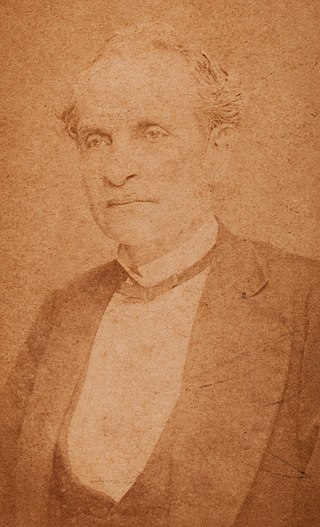
João Maurício Vanderlei or Wanderley, first and only baron of Cotegipe, was a Brazilian magistrate and politician of the Conservative Party.

The Federalist Revolution was a civil war that took place in southern Brazil between 1893 and 1895, fought by the federalists, opponents of Rio Grande do Sul state president, Júlio de Castilhos, seeking greater autonomy for the state, decentralization of power by the newly installed First Brazilian Republic and, arguably, the restoration of the monarchy.
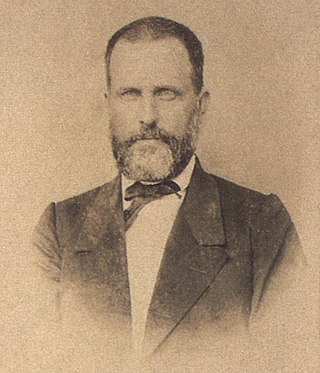
José Antônio Saraiva, also known as Counsellor Saraiva, was a Brazilian politician, diplomat and lawyer during the period of the Empire of Brazil (1822–1889). He held the position of President of the Council of Ministers firstly from 28 March 1880 to 21 January 1882 and second 6 May May 1885 to 20 August 1885. He was appointed by Emperor Pedro II to form a cabinet in the early hours of 16 November 1889, but did not assume the position because of the Republican coup d'état. He was provincial deputy, provincial president, minister of foreign affairs, minister of war, minister of the navy, minister of the empire, minister of finance, senator of the Empire of Brazil from 1869 to 1889 and the republic from 1890 to 1893.

Flávia Lopes Saraiva is a Brazilian artistic gymnast. She represented Brazil at the 2014 Summer Youth Olympics in Nanjing, the 2016 Summer Olympics in Rio, the 2020 Summer Olympics in Tokyo, and the 2024 Summer Olympics in Paris where she won a bronze medal as part of the Brazilian team. She was also part of the teams that won silver at the 2023 World Championships, gold at the 2018 South American Games and bronze at the 2015 and 2019 Pan American Games. Individually she is the 2014 Summer Youth Olympic floor exercise champion, the 2023 World Championships floor exercise bronze medalist and is a multi-medalist at the Pan American Games, South American Games, and Pan American Championships.
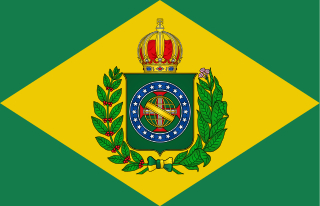
Events in the year 1882 in Brazil.

Events in the year 1880 in Brazil.

Events in the year 1881 in Brazil.

Events in the year 1886 in Brazil.

Manuel Pinto de Sousa Dantas was a Brazilian lawyer, politician and Prime Minister of Brazil from 1884-1885, noted for his efforts to reform slavery.
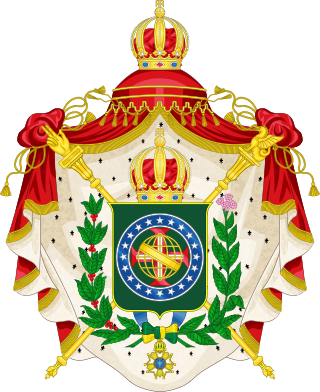
The Saraiva-Cotegipe Law, also known as the Sexagenarian Law, officially Law No. 3,270 of 28 September 1885, was a Brazilian law enacted on 28 September 1885 that granted freedom to slaves aged 60 or older. Before the release, there would be mandatory and free service, which would be provided as compensation, paid to the slaves' masters; unless the slave reached 65 years of age.